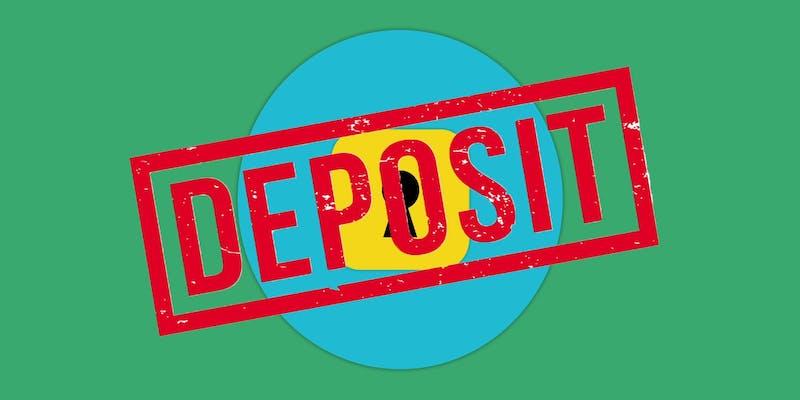A Guide To Negotiable Certificate of Deposit (NCD) and Its Risks
Jan 04, 2024 By Triston Martin
Jumbo CDs are negotiable certificates of deposit (NCDs). Their minimum face value is $100,000, but they're often worth $1 million or more. These financial instruments are highly liquid in the secondary market and guaranteed by banks. You can't redeem them before maturity. NCDs are predominantly favored by large institutional investors, such as corporations or mutual funds, due to their substantial denominations. These investors often seek a secure, low-interest investment option, making advantages of negotiable certificate of deposit suitable.
Those devices are quick-term, with adulthood periods varying from two weeks to 12 months. There are distinct approaches to interest dealing with NCDs: it could be paid semi-yearly, in adulthood, or the NCD might be offered at a discount from its face price. The interest rates are a concern to negotiation and depend closely on triumphing conditions in the cash marketplace.
The Historical Context of NCDs
The idea of NCDs dates back to 1961, originating from the first country-wide metropolis bank of recent York, now called Citibank. The introduction of negotiable certificate of deposit concepts was a strategic circulate using banks to counteract a decade-long deposit scarcity. This shortage stemmed from depositors transferring their price range from checking money owed to extra lucrative options like Treasury payments, commercial paper, and bankers' acceptances.
The First National City Bank of New York pioneered the advantages of negotiable certificate of deposit trading by lending $10 million in government securities to a New York broker. This crucial move enabled NCD secondary markets. NCD circulation reached $15 billion in 1966, $30 billion by 1970, and $90 billion by 1975. The marketplace for NCDs typically appeals to prosperous people and institutional entities, which includes coverage organizations, pension budgets, and mutual funds. Its elegance lies in supplying a return on investments considered low-danger and notably liquid.
Features of Negotiable Certificate of Deposits

Negotiable certificates of Deposit (NCDs) are economic units with brief-term adulthood durations, typically between some weeks and 365 days. They provide interest payments either bi-annually or upon adulthood. The hobby prices for negotiable certificates of deposit are open to negotiation and closely align with present-day money marketplace traits. NCDs share similarities with traditional Certificates of Deposit (CDs), but they stand out due to two key features:
Substantial Minimum Value: Unlike regular CDs, which cater to various investment amounts for average investors, NCDs have a minimum face value of $100,000, often reaching much higher sums.
Negotiability: NCDs offer greater flexibility in terms of negotiation compared to regular CDs.
Uses
The higher face value of NCDs typically places them beyond the reach of everyday investors. They are predominantly utilized by large entities and individuals with significant wealth as a strategy for efficient cash management, ensuring optimal use of funds. In contrast to the limited negotiating power of regular investors regarding CD terms, NCDs present a different scenario. Large institutions and wealthy individuals possess considerably more influence and can actively negotiate terms with banks and financial organizations.
The Federal Reserve reported in 2021 that institutional investors in the US invested $500 billion in the negotiable certificate of deposit concept, demonstrating their popularity. According to Treasury Department data, NCD interest rates range from 1.5% to 2%, depending on market conditions. These instruments earn interest and help financial institutions manage large sums. High-value investors in the UK and Canada rely heavily on NCDs. NCDs are expected to continue to influence institutional investors' financial strategies.
Investor Benefits of Negotiable CDs
Security of Investment
Negotiable certificates of Deposit (NCDs) offer traders a secure option. Investors feel secure because the financial institution or organization issues those financial instruments. Most US banks insure NCDs with FDIC insurance, which protects investments up to $250,000. This coverage protects investor capital even if a financial institution fails, which is unlikely. Historical data shows that NCDs have maintained a stable tune file since the 1960s, making them a popular choice for conservative investors.
Access To Funds
One of the big advantages of NCDs is their high liquidity. In contrast to conventional certificates of Deposit, NCDs can be traded in secondary markets. This feature permits investors to promote their NCDs before maturity if they need instantaneous financial access. For example, secondary markets for NCDs are properly developed in the UK, providing investors with a platform to liquidate their investments successfully.
Attractive Hobby Returns
NCDs regularly provide greater appealing interest charges than standard savings debts or different brief-term funding motors. For instance, as of 2022, the common hobby rate for NCDs in Australia was around 1.5% to 2%, extensively higher than the average savings account interest fee of 0.5%. This better interest rate is because of the negotiable nature of NCDs, which provide a top rate to the price presented by banks.
Investment Versatility
NCDs provide a range of alternatives to shape specific funding strategies and needs. Buyers can pick among varying maturity intervals, ranging from some months to numerous years. Moreover, explanation of negotiable certificate of deposit comes in unique interest charge systems and fixed-rate and floating-price alternatives. For instance, in Canada, floating-rate NCDs are linked to marketplace indices like the purchaser rate Index (CPI), allowing investors to gain from rising interest rates.
Drawbacks of Negotiable CDs

Negotiable CD Interest Rate Risk
Rising market interest rates are a major risk when investing in Negotiable Certificates of Deposit (NCDs). The issue is simple: rising interest rates may make NCD fixed returns less appealing. Investors may seek higher-return alternatives. This risk is greater in longer-maturity NCDs. A 2020 Federal Reserve study found that long-term fixed-rate instruments, like NCDs, lost value when U.S. interest rates rose moderately.
Negotiable CD Credit Risk
Also, consider credit risk when dealing with NCDs. The bank or financial institution issuing the NCD may default on its financial obligations. NCDs, especially those from high-rated banks, are safe investments. However, economic turmoil can increase credit risk. In 2008, several financial institutions faced major issues that threatened the safety of their financial instruments.
Negotiable CD Reinvestment Risk
NCD investors worry about reinvestment risk, especially when NCDs mature at low-interest rates. This risk includes reinvesting principal or interest at a lower rate than the NCD offered. If a 2018 explanation of negotiable certificate of deposit with a 4% interest rate matures in 2023, the investor may find lower market rates, affecting reinvestment returns. According to the European Central Bank, as major economies maintained historically low-interest rates, reinvestment risks increased post-2008.

Investment
Beginner's Blueprint: Steering the Landscape of Starting a Business
Ready to turn your business idea into reality? Uncover essential steps and practical insights in our comprehensive guide on how to start a business successfully.
Learn More
Mortgages
A Complete Guide to Pool Loan Monthly Payment Calculators
Calculate your pool loan monthly payments accurately with easy-to-use calculator and plan your finances efficiently.
Learn More
Investment
Exploring 5 Online Brokerage Platforms in 2024
Uncover the top online brokers for 2024 to find the best platform for your investment needs. Compare five brokers and choose the best.
Learn More
Banking
Amortized Loans Made Simple: Key Concepts and Examples
Curious about amortized loans? Learn what they are, how they work, and explore various loan types with clear examples.
Learn More
Investment
Understanding the CME FedWatch Tool and Its Impact on Financial Markets
This article explains the CME FedWatch Tool's role in predicting interest rate changes and aiding investors in making informed financial decisions.
Learn More
Investment
An Eccentric Guide: How Snapchat Makes Money
Snapchat is an app that allows users to send other private messages and share photos and videos with their friends and family. On this platform, users can send and receive messages, photographs, and videos that vanish after being viewed by the recipient.
Learn More